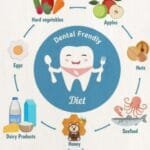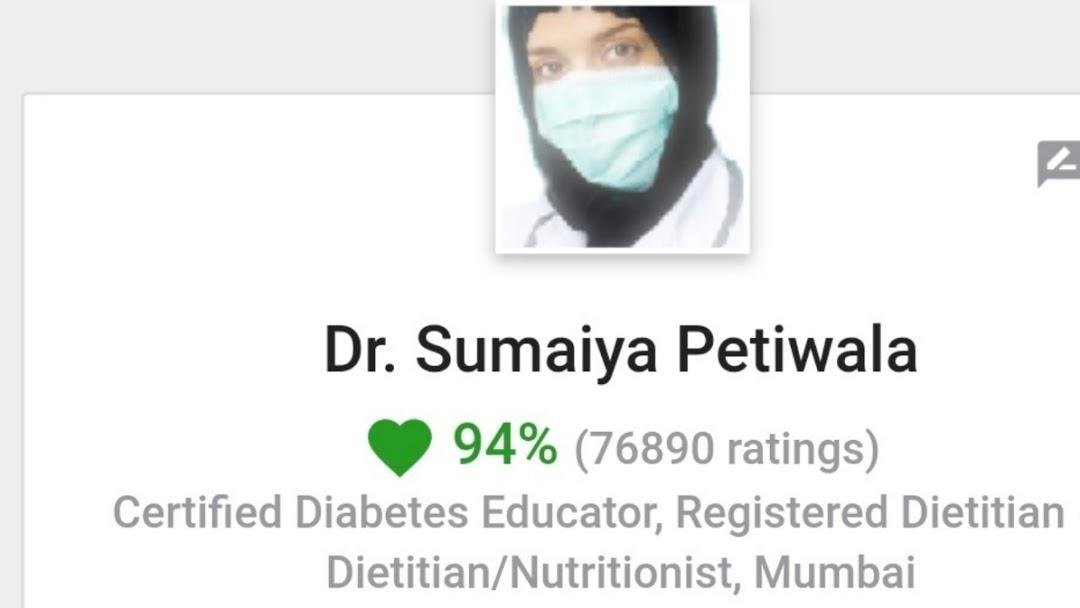Introduction to Dr. Sumaiya’s Nutricare
Dr. Sumaiya is a renowned nutrition consultant, dedicated to helping individuals achieve their health goals through personalized dietary strategies. With extensive expertise in the field of nutrition and wellness, she has cultivated a practice that emphasizes the importance of tailored diet plans, particularly during significant periods such as Ramadan. Her approach integrates traditional dietary practices with contemporary nutritional science, ensuring that clients receive comprehensive guidance that respects cultural norms while promoting health and well-being.
At the heart of Dr. Sumaiya’s Nutricare is the belief that nutrition is not a one-size-fits-all endeavor. By offering customized dietary plans, she supports clients in making informed choices that cater to their unique health needs and lifestyles. Her experience has proven invaluable for those observing Ramadan, a time when dietary habits shift significantly. Dr. Sumaiya provides strategies that help individuals navigate the challenges of fasting, ensuring adequate nutrition intake while fostering overall health during this spiritual month.
Moreover, her expertise extends to individuals interested in intermittent fasting, a popular dietary approach that has gained traction for its potential health benefits. Dr. Sumaiya’s Nutricare offers insightful guidance on how to implement intermittent fasting safely and effectively, focusing on nutrient-rich foods that sustain energy levels and promote well-being during fasting periods. By combining evidence-based practices with a personalized touch, Dr. Sumaiya empowers her clients to embrace healthier lifestyles, enhance their nutritional knowledge, and achieve sustainable health outcomes.
The Importance of a Balanced Diet During Ramadan
Ramadan is a sacred month for Muslims, characterized by fasting from dawn until sunset. During this time, maintaining a balanced diet is crucial for overall health and well-being. The dietary choices made during Suhoor (the pre-dawn meal) and Iftar (the meal to break the fast) play a significant role in sustaining energy levels, optimizing hydration, and meeting nutritional requirements. A well-structured diet can help mitigate the challenges associated with fasting while promoting a healthy lifestyle.
During Ramadan, the body undergoes various metabolic changes due to the extended fasting period. Such changes can lead to an increase in appetite and cravings, making it vital to choose nutrient-dense foods. Incorporating a balance of carbohydrates, proteins, healthy fats, vitamins, and minerals in meals is essential. Whole grains, fruits, vegetables, lean proteins, and healthy fats should be prioritized to provide sustained energy and essential nutrients throughout the day.
Hydration is another critical aspect of a balanced diet during Ramadan. Fasting can lead to dehydration, since individuals cannot consume fluids during the day. It is essential to drink sufficient water during the non-fasting hours, particularly at Suhoor and Iftar. Additionally, incorporating hydrating foods such as cucumbers, tomatoes, and watermelon can contribute to overall fluid intake, thus helping to prevent dehydration.
Moreover, the timing and structure of meals can influence energy levels and metabolism. Consuming a balanced Suhoor is vital, as it should provide sustained energy for the day ahead. Similarly, breaking the fast with a nutritious Iftar can help replenish nutrients and restore energy levels. By planning meals thoughtfully and focusing on a balanced diet, individuals can better manage their health goals during Ramadan.
Understanding Intermittent Fasting
Intermittent fasting (IF) is a dietary approach that alternates between periods of eating and fasting. It does not prescribe specific foods but rather focuses on when to eat. Various methods of intermittent fasting exist, each tailored to different lifestyles and preferences. For instance, the 16/8 method involves fasting for 16 hours and eating during an 8-hour window. Another popular method is the 5:2 approach, where individuals consume a regular diet for five days and limit calorie intake to about 500-600 calories on two non-consecutive days. The warrior diet and alternate-day fasting are additional models that people may choose based on their goals and comfort levels.
The versatility of intermittent fasting makes it appealing for those seeking weight management and overall health improvements. Research indicates that IF can enhance metabolic health by improving insulin sensitivity, reducing inflammation, and promoting fat loss without significant calorie restriction. Consequently, it may be particularly advantageous for individuals struggling with obesity or metabolic syndrome. Additionally, intermittent fasting has been linked to cognitive benefits, potentially supporting brain health and reducing risks associated with neurodegenerative diseases.
An important aspect of intermittent fasting is its connection to weight management. By limiting the eating window, individuals often consume fewer calories, which can lead to weight loss. However, it is essential to choose nutrient-dense foods during eating periods to ensure the body receives adequate nutrition. This method allows flexibility in dietary choices while also promoting mindful eating habits.
Intermittent fasting becomes increasingly relevant during Ramadan when millions of Muslims worldwide fast from dawn until sunset. This context provides a unique opportunity to leverage the principles of intermittent fasting to promote better health and well-being throughout the holy month.
Dr. Sumaiya’s Specialized Ramadan Diet Plans
Dr. Sumaiya has developed tailored Ramadan diet plans designed to accommodate individual health needs while ensuring adequate energy levels during the fasting period. Understanding that dietary requirements can vary widely based on existing health issues, these plans are meticulously crafted to promote overall health and well-being throughout Ramadan.
One of the key features of Dr. Sumaiya’s meal plans is their focus on nutrient composition. Each plan typically includes a balanced intake of carbohydrates, proteins, and healthy fats to sustain energy levels from iftar to suhoor. For instance, a sample meal might include grilled chicken with quinoa and a variety of vegetables, providing essential vitamins and minerals while ensuring protein intake. To satisfy sweet cravings while maintaining health, dates can be incorporated, renowned for their energy-boosting properties.
The customization aspect is particularly crucial. For individuals managing specific health concerns such as diabetes, hypertension, or digestive issues, Dr. Sumaiya recommends alternative ingredients to minimize the risk of fluctuations in blood sugar or blood pressure. For example, complex carbohydrates such as sweet potatoes can replace refined grains, offering a steady release of energy. Additionally, the use of herbs and spices not only enhances flavor but also supports digestion and overall health.
Throughout the fasting month, hydration is equally important. Dr. Sumaiya emphasizes the significance of fluid intake during non-fasting hours and recommends hydration strategies, such as herbal teas or infused waters, to ensure adequate water levels without causing discomfort. Combining these dietary strategies, health issues are effectively managed, ensuring individuals can fully embrace the spiritual and physical benefits of Ramadan.
Health Benefits of Ramadan Fasting
Fasting during Ramadan presents numerous health benefits that can positively impact both physical and mental well-being. One of the most significant advantages of this period of fasting is the improvement in metabolic health. When food intake is restricted to specific hours, the body is compelled to utilize stored fat for energy, leading to effective weight loss. This process not only aids in shedding excess pounds but also helps in regulating blood sugar levels, thereby reducing the risk of developing chronic diseases such as type 2 diabetes and cardiovascular issues.
Intermittent fasting, which is often practiced during Ramadan, has been shown to promote cellular repair processes and enhance hormone functioning. As the body undergoes fasting, it activates autophagy, a natural detoxification function where cells remove damaged components. This mechanism is crucial for maintaining cellular health and can potentially prevent various health disorders.
In addition to physical health benefits, fasting during Ramadan also fosters mental clarity and emotional resilience. By abstaining from food and drink, individuals often report heightened alertness and improved concentration, which can facilitate better decision-making and productivity. Moreover, the spiritual aspect of fasting can lead to enhanced mood and a sense of community through shared experiences during this sacred month.
To maximize these health benefits, it is vital to adopt a specialized diet that complements the fasting regimen. Consuming nutrient-dense foods, staying hydrated during non-fasting hours, and ensuring a balance of macronutrients are essential to sustaining energy levels and optimizing health. Incorporating fruits, vegetables, whole grains, and healthy fats can enhance the advantages of fasting and lead to a more holistic improvement in one’s health.
Intermittent Fasting for Weight Management
Intermittent fasting is increasingly recognized as a practical approach for sustainable weight management. This dietary strategy involves alternating periods of eating and fasting, which can lead to a reduction in calorie intake, along with metabolic benefits. By allowing the body to enter a fasting state, intermittent fasting encourages the use of fat stores for energy, thereby promoting weight loss.
One popular method of intermittent fasting is the 16/8 approach, where individuals fast for 16 hours and eat within an 8-hour window. This method is straightforward and can easily be integrated into daily routines. For example, many people choose to skip breakfast and eat their first meal at noon, then finish their last meal by 8 PM. This form of fasting not only aids in weight loss but also has the potential to improve overall health by enhancing metabolic function and reducing inflammation.
Dr. Sumaiya’s Nutricare has successfully guided numerous clients through their weight management journeys using intermittent fasting. There are compelling testimonials. One client noted a significant improvement in her energy levels and mood after adopting this fasting technique, alongside a weight reduction of nearly 10% within a few months. Another individual shared how intermittent fasting helped him develop a healthier relationship with food, learning to enjoy meals without the constant urge to snack throughout the day.
While intermittent fasting has shown positive results for many, it is essential to approach it mindfully. Individuals should consider their unique health needs and consult with healthcare professionals to ensure that fasting aligns with their lifestyle and long-term weight management goals. Encouraging a balance between fasting and nourishing meals can lead to sustainable results, reinforcing the effectiveness of intermittent fasting as a viable option for weight management.
Common Health Issues Addressed by Nutricare
Dr. Sumaiya’s Nutricare offers comprehensive dietary consultations aimed at addressing common health issues that individuals encounter, particularly during fasting periods such as Ramadan. The significance of tailored dietary plans cannot be overstated, as they play a crucial role in managing conditions like diabetes, obesity, and heart health.
Diabetes is a prevalent concern that requires careful dietary management to maintain stable blood sugar levels. During fasting, it is essential for individuals with diabetes to balance their carb intake, monitor their glucose levels, and ensure adequate nutrition. Dr. Sumaiya develops personalized meal plans that consider the unique metabolic responses of diabetic patients, integrating whole grains, lean proteins, and healthy fats, which are particularly beneficial for maintaining energy and preventing blood sugar spikes.
Obesity is another common health issue that can be exacerbated by improper nutritional practices during fasting. Overeating during suhoor and iftar is a common challenge faced by many individuals. Dr. Sumaiya focuses on educating her clients about portion control, nutrient-dense food choices, and the importance of hydration. By establishing a well-structured diet, individuals can achieve gradual weight loss or maintenance without compromising their health during Ramadan.
Heart health is also a critical area of focus. Diet plays a pivotal role in controlling cholesterol levels and managing blood pressure, both of which are essential for maintaining cardiovascular health. Through Nutricare, patients receive guidance on incorporating heart-healthy foods, such as fruits, vegetables, and whole grains into their Ramadan diets. By addressing these health issues with tailored consultations, Dr. Sumaiya empowers individuals to make informed dietary choices that promote overall well-being, even during fasting.
Tips for a Successful Fast
Participating in Ramadan or any form of intermittent fasting can be a transformative experience, but it requires careful planning and self-discipline to achieve optimal results. One essential tip is to thoughtfully prepare meals that are nutritious and fulfilling for both Suhoor (pre-dawn meal) and Iftar (meal to break the fast). Focus on incorporating a balanced mix of carbohydrates, proteins, and fats to sustain energy levels throughout the day. Whole grains, lean meats, legumes, and plenty of fruits and vegetables are excellent choices. Implementing complex carbohydrates, such as oatmeal or whole grain bread, can provide long-lasting energy during fasting.
Staying hydrated is another crucial aspect when engaging in intermittent fasting, particularly during Ramadan. It is advisable to drink ample water during non-fasting hours. Aim for at least eight glasses from Iftar to Suhoor, interspersed with hydrating foods like cucumbers, watermelons, and soups. Avoid caffeine-rich beverages as they can contribute to dehydration, and instead focus on herbal teas or water. Proper hydration significantly helps in mitigating fatigue and managing hunger pangs.
Managing cravings during fasting also plays a vital role in maintaining focus and motivation. One effective strategy is to eat slowly during Iftar, allowing time for the body to recognize fullness. Start with light foods, such as dates and water, and gradually progress to the main meal. Nip cravings in the bud by keeping busy, engaging in light activities or prayers, to distract from thoughts of food. Additionally, having healthy snacks on hand can help curb unnecessary cravings. By employing these practical tips, individuals can enhance their fasting experience, leading to a successful and fulfilling observance of Ramadan or other intermittent fasting protocols.
Conclusion: Embracing a Healthier Lifestyle with Nutricare
As individuals navigate through the challenges of Ramadan, achieving health goals can often feel daunting. However, partnering with Dr. Sumaiya’s Nutricare for dietary guidance during this period can significantly alleviate such concerns. Nutricare emphasizes the importance of personalized nutrition plans that cater specifically to an individual’s needs. With a tailored approach, individuals can properly manage their energy levels, sustain their fasting regimen, and uphold their wellbeing throughout the month.
The benefits of adopting a tailored dietary strategy during Ramadan are manifold. Firstly, through Dr. Sumaiya’s expertise, clients receive tailored advice that considers not only personal health conditions but also lifestyle habits. This level of customization ensures that individuals can safely engage in fasting while meeting their nutritional requirements. Moreover, Nutricare promotes a balanced intake of essential nutrients, which helps in maintaining optimal health and boosts overall vitality. The use of innovative techniques in intermittent fasting further enhances the benefits of nutritional adherence, leading to effective weight management and improved metabolic functions.
Beyond Ramadan, the foundation laid during this month can guide individuals towards embracing a lifelong commitment to healthier eating habits. Engaging with Dr. Sumaiya’s Nutricare instills the importance of nutrition as a central pillar of overall health, empowering individuals to make informed dietary choices long after the fasting period has concluded. In essence, by considering personalized nutrition as an essential step, individuals can work towards achieving their health goals seamlessly. Thus, for those looking to optimize their diet during Ramadan and cultivate healthier lifestyles thereafter, Dr. Sumaiya’s Nutricare offers invaluable support and expertise.




